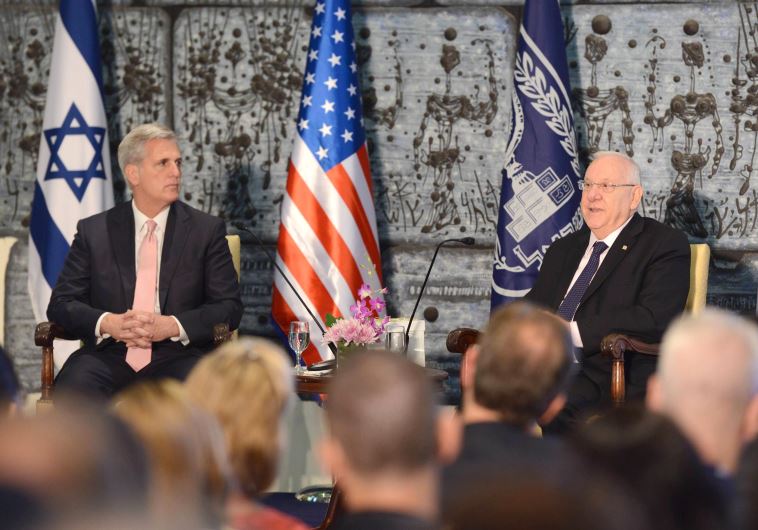Republican Congressmen talk Iran Deal with Rivlin and Netanyahu
President meets with Republican congressional delegation a week after having met with Democratic delegation, giving an almost identical speech.
 President Reuven Rivlin meets congressional delegation(photo credit: Mark Neiman/GPO)Updated:
President Reuven Rivlin meets congressional delegation(photo credit: Mark Neiman/GPO)Updated: